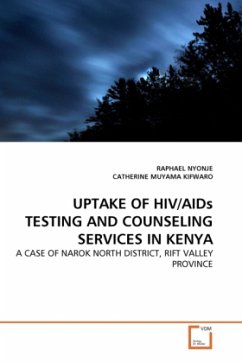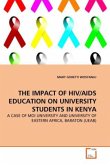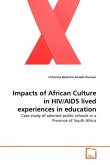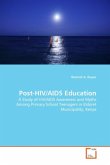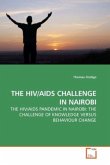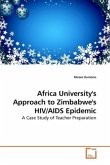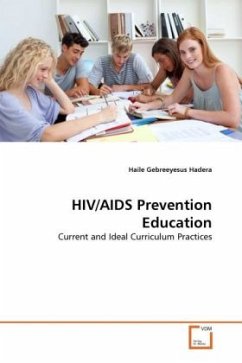The fight against HIV/AIDs has been one of the key concerns to the Kenyan Government. In order to combat the scourge, the government of Kenya, among other initiatives, has tried to encourage her citizens to know their status through voluntary HIV/AIDs counseling and testing (HTC).Despite all these efforts the uptake of HTC has been reported to be as low as 33.9%, with urban dwellers leading the uptake list. Narok North is a rural area situated in Rift Valley Province of Kenya and is characterized by low numbers of health facilitates and poor infrastructures. The purpose of the study was to investigate the determinants of the uptake of HIV Testing and Counseling services in Narok North district-Kenya. Demographic characteristics of household,socio-economic factors, and distance to HTC centers were some of the indicators selected for investigation. A sample of 204 was derived from a target population of 39,133 household. It was established that sex, marital status and the educationlevel of the respondents significantly influence the uptake of HTC. Distance to Health centers with HTC facilities, income level of households, were found to be strong determinants of HTC uptake.
Bitte wählen Sie Ihr Anliegen aus.
Rechnungen
Retourenschein anfordern
Bestellstatus
Storno

